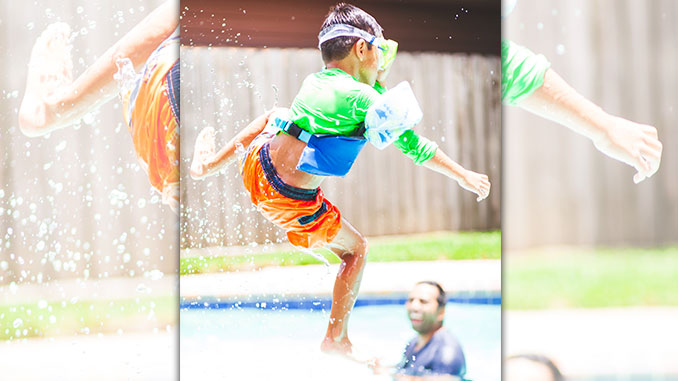
Summer is here! Pools are opening, but safety is key.
Published: June 4, 2020
By: Courtesy of Pool Troopers
Author Website: Click to Visit
Introducing swimming to your child at an early age can encourage them to remain healthy throughout their lives. And if you’re homeschooling your child (and so many of us are due to Coronavirus and safer-at-home orders), swimming is an excellent choice for a homeschool physical education program.
With swimming as part of their homeschool program, P.E. will never be boring because swimming feels like playing. Your child will probably have fun without realizing they’re also getting a healthy workout. The key is to do safe activities that are both fun and promote aerobic exercise.
However, note that you must take extra precautions if you choose swimming for a homeschooling activity. As warmer weather approaches, be sure to share these pool safety rules with your children before the swimming season begins!
-
No running.
This is the number one safety rule at any pool. Do not run near a pool, especially in the wet spots. Slipping on wet concrete can lead to severe injuries.
-
Listen to pool rules and instructions.
If you are at a public pool, consider that they may have different rules about general conduct and play, such as toys and equipment that are allowed. If you have a pool at home, it’s ideal to have your own set of rules.
-
No diving in the shallow end.
Diving in the shallow end can cause spinal injuries. Only dive in designated areas like the diving board, which is placed where the water is deep enough. Don’t dive into an above-ground pool, which is typically too shallow for safe diving.
-
No roughhousing.
During rough play in the pool, drowning accidents can happen, especially with young children. Do not let children jump on each other in the pool, or keep anyone underwater.
-
No playing around pool covers and drains.
Pool covers and drains can be dangerous. Entrapments can happen when someone gets stuck to these drains or suctions. These pose a real threat to young children who are too small to get away when they find themselves sucked in, entangled and stuck. Inspect the drains and covers in your pool regularly to make sure they function correctly.
-
No swimming alone.
Children should definitely never be left unsupervised in a pool, even if they are experienced swimmers. Drowning accidents are more likely to happen when the victim is left unattended.
-
Sun safety.
Kids should always wear sunscreen and appropriate clothing at the outdoor poolside.
-
Use pool safety equipment.
Pool safety equipment mustn’t be used as toys. Make sure all equipment is well maintained and available whenever you may need it.
-
Get out of the pool when storms threaten.
Lightning can strike even out of the blue. Go inside when a storm approaches. Keep out of the water until at least half an hour after the last lightning is seen.
-
Know how to act in an emergency.
Parents should know the basics of first aid and CPR. Always have a phone with you. Teach your children to notify an adult right away if anyone is having difficulty at the pool.
